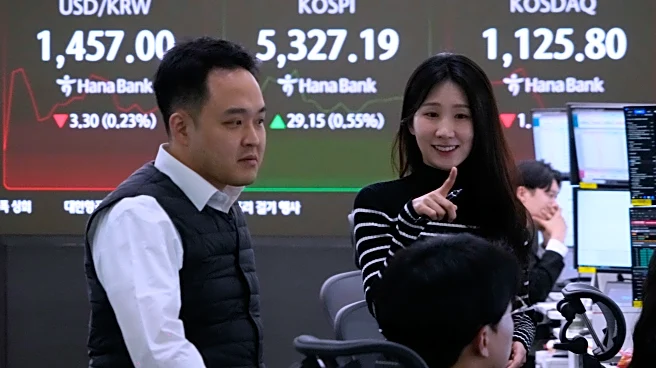Rapid Read • 8 min read
L'Oréal and other European Union brands are leveraging a US customs clause known as the 'first sale' rule to alleviate the financial burden imposed by President Trump's global tariffs. This rule allows companies to apply levies at the point of a product's exit from the factory, rather than at the retail entry point, which is typically more expensive. Despite the increased administrative requirements and the rule's applicability only to goods shipped to the US, companies like L'Oréal are considering this option. The EU has faced 15% levies on imported goods, a reduction from the initially threatened 30% tariffs following negotiations. This tariff increase has significantly impacted the cosmetics sector, with L'Oréal CEO Nicolas Hieronimus expressing concerns over the financial implications during a call with investors.
AD
The utilization of the 'first sale' rule by EU brands highlights the significant impact of President Trump's tariffs on international trade, particularly affecting the cosmetics industry. These tariffs have led to increased costs for exporting goods to the US, prompting companies to seek alternative strategies to maintain profitability. The broader economic implications include potential shifts in trade practices and increased administrative burdens for companies. The tariffs have also caused disruptions in global stock markets, reflecting the widespread economic uncertainty. Companies that successfully navigate these challenges may gain a competitive edge, while those unable to adapt could face financial strain.
As companies continue to explore the 'first sale' rule, there may be increased scrutiny and potential legal challenges regarding its application. Businesses will need to weigh the benefits against the administrative complexities and potential risks. The ongoing negotiations between the EU and the US could lead to further adjustments in tariff rates, impacting future trade strategies. Additionally, companies may need to consider price adjustments for their products to offset increased costs, potentially affecting consumer demand and market dynamics.
The reliance on the 'first sale' rule underscores the broader challenges faced by international businesses in adapting to changing trade policies. This situation may prompt discussions on the need for more streamlined and transparent trade regulations to facilitate global commerce. The tariffs also raise questions about the long-term sustainability of current trade practices and the potential for increased protectionism, which could alter the landscape of international trade.
AD
More Stories You Might Enjoy












